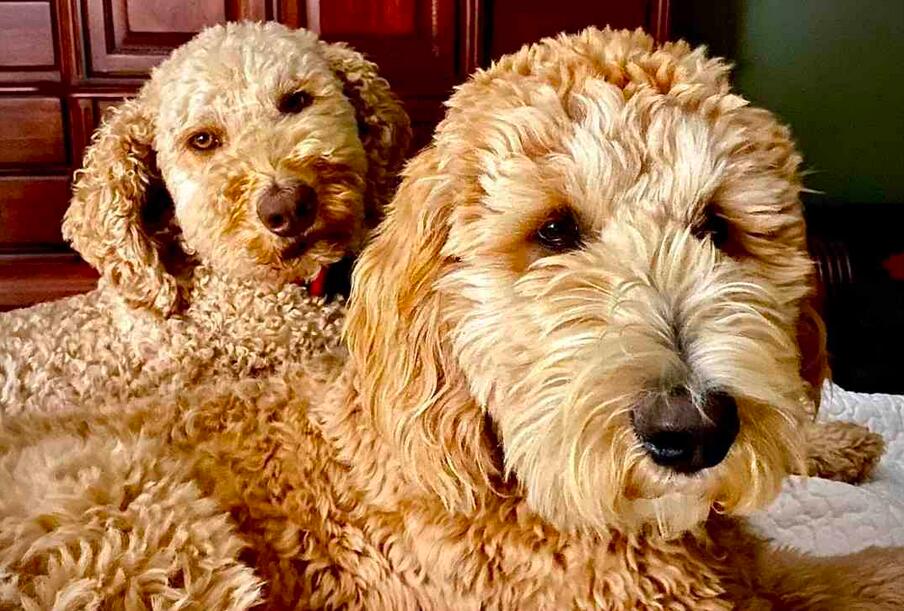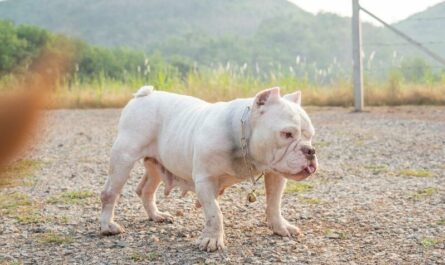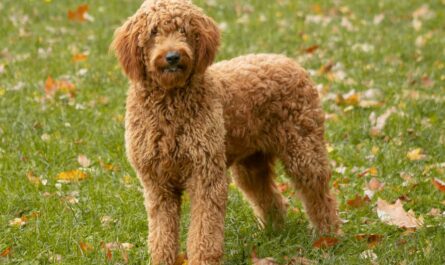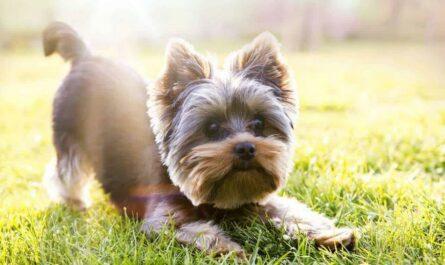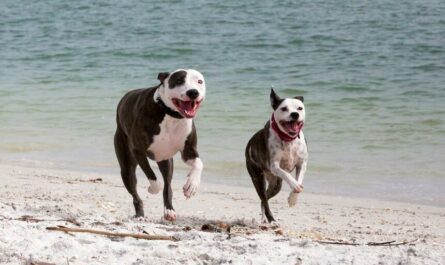The F1b Goldendoodle is a remarkable breed that has gained popularity over the past few years. It’s a hybrid breed, a mix between a standard Poodle and an F1 Goldendoodle. This breed is cherished for its intelligence, friendliness, and outstanding ability to get along with people of all ages. This article will provide you with everything you need to know about the F1B Goldendoodle.
Understanding the F1b Goldendoodle breed
To understand the F1b Goldendoodle breed, it’s essential to know the term ‘F1b’. ‘F1’ refers to the first generation of a breed, meaning the breed is a half-and-half mix of its parent breeds. In this case, an F1 Goldendoodle is a cross dog between a Golden Retriever and a Poodle.
The ‘b’ in F1b stands for ‘backcross,’ which means one of the parents is a purebred. In the case of the F1b Goldendoodle, one parent is an F1 Goldendoodle, and the other is a purebred Poodle.
An F1b Goldendoodle is, therefore, 75% Poodle and 25% Golden Retriever. This backcrossed breed is known for its wavy or curly coat, which is a characteristic derived from its Poodle parentage.

Origins of the F1b Goldendoodle
The origin of the F1b Goldendoodle is tied to the rise in popularity of designer dog breeds in the late 20th century. The first Goldendoodle, a cross between a Golden Retriever and a Poodle, was bred in the 1990s. The breed gained popularity due to its intelligence, friendly nature, and hypoallergenic coat.
Today, the F1b Goldendoodle is recognized by many dog organizations, including the Designer Dogs Kennel Club and the International Designer Canine Registry. However, it’s important to note that the American Kennel Club does not recognize the breed, primarily because it’s a hybrid breed.
Appearance of F1B Goldendoodles
F1B Goldendoodles typically have a curly coat that resembles the Poodle more than the Golden Retriever. Their coat color can vary, often after the Golden Retriever’s hue. However, F1B Goldendoodles can come in a wide range of colors.
These dogs have floppy ears and either curly or long, straight hair on their muzzles. Additionally, F1B Goldendoodles come in various sizes, with the size of the parents playing a significant role in determining the size of the offspring.
Size of F1B Goldendoodles
The size of an F1B Goldendoodle can vary greatly, as they can come in almost any size. The three main sizes of Poodles (standard, miniature, and toy) contribute to the range of sizes seen in F1B Goldendoodles.
However, there are no strict guidelines for the size of these dogs. The size of an F1B Goldendoodle ultimately depends on the size of its parents. If you prefer a smaller dog, look for smaller parents, and vice versa.
Coat Type of F1B Goldendoodles
F1B Goldendoodles can have different coat types, including straight, wavy, or curly. While wavy and curly coats are more common, the coat type can vary due to the mix of genes in this hybrid breed.
Temperament of F1B Goldendoodles
F1B Goldendoodles are known for their friendly and affectionate nature, making them excellent family dogs. They are generally great with children and enjoy spending time with their families. F1B Goldendoodles are also highly trainable, as they are eager to please and quick learners. Their temperament is often considered ideal for a dog.
Affectionate Nature of F1B Goldendoodles
If you are looking for an incredibly friendly and affectionate dog, the F1B Goldendoodle will not disappoint. These dogs inherit their affectionate nature from both the Golden Retriever and the Poodle. F1B Goldendoodles tend to see everyone they meet as their new best friend and thrive on love and attention.
Compatibility with Kids
F1B Goldendoodles are a great choice for families with children. They are known for being friendly, playful, and energetic, making them great companions for kids.
These dogs are typically gentle and tolerant, but it is essential to supervise interactions between dogs and children to ensure the safety and well-being of both.
Interaction with Other Animals
While F1B Goldendoodles usually get along well with other dogs and cats, it is important to note that they may not be suitable for households with small pets like guinea pigs and rabbits.
This is because Goldendoodles have hunting instincts inherited from both the Golden Retriever and Poodle. It is crucial to keep smaller pets safe from their natural prey drive.
Aggression in F1B Goldendoodles
F1B Goldendoodles are generally not aggressive. They are known for their friendly and outgoing nature, making them great companions for both humans and other animals.
These dogs usually do not have issues with food guarding or territorial behavior. However, proper socialization during puppyhood is vital to ensure a well-rounded and well-behaved adult dog.
Barking Habits of F1B Goldendoodles
F1B Goldendoodles are not known for excessive barking. However, they may bark to warn their owners of dangers or strangers. While barking tendencies can vary between individuals, F1B Goldendoodles are generally not considered excessively vocal.
Intelligence and Trainability of F1B Goldendoodles
F1B Goldendoodles are considered intelligent mixed breeds. They are quick learners and have excellent observation skills. Many owners believe that these dogs can even sense their owners’ emotions. F1B Goldendoodles are easy to train. They usually respond well to reward-based training and positive reinforcement methods.
While professional training is unnecessary, joining a group training class can provide additional opportunities for socialization and learning.
Energy Levels and Exercise Requirements
F1B Goldendoodles have a high energy level, thanks to their Golden Retriever and Poodle heritage. These dogs usually require regular exercise to keep them happy and healthy.
Activities such as daily walks, playtime in the yard, and interactive games like fetch are ideal for burning off their energy. Engaging in physical activities for at least an hour daily is essential to prevent boredom and destructive behavior.
It is important to consider your own lifestyle and commitment to providing the necessary exercise before adopting an F1B Goldendoodle.
Suitability for Apartment Living
While F1B Goldendoodles can adapt to apartment living, their energy levels and exercise needs should be considered. Regular exercise is crucial for their well-being, regardless of living arrangements.
Smaller Goldendoodles may find apartment living easier than larger ones, but it ultimately depends on the owner’s commitment to meeting their exercise requirements.
Watchdog Potential of F1B Goldendoodles
F1B Goldendoodles can make good watchdogs due to their alert nature. They usually bark to alert their owners of strangers or potential threats.
However, they are generally unsuitable as guard dogs, as their friendly and outgoing temperament makes them more likely to greet intruders with wagging tails than to act aggressively. Their appearance is also not intimidating, especially in smaller sizes.
Service Dog Potential of F1B Goldendoodles
F1B Goldendoodles can excel as service dogs due to their intelligence, trainability, and ability to sense emotions. Their eagerness to learn and their superb observation skills make them well-suited for various service dog roles, including psychiatric service dogs and emotional support animals.
Additionally, their friendly and open personalities make them excellent therapy dogs, bringing comfort and joy to people in hospitals and nursing homes.
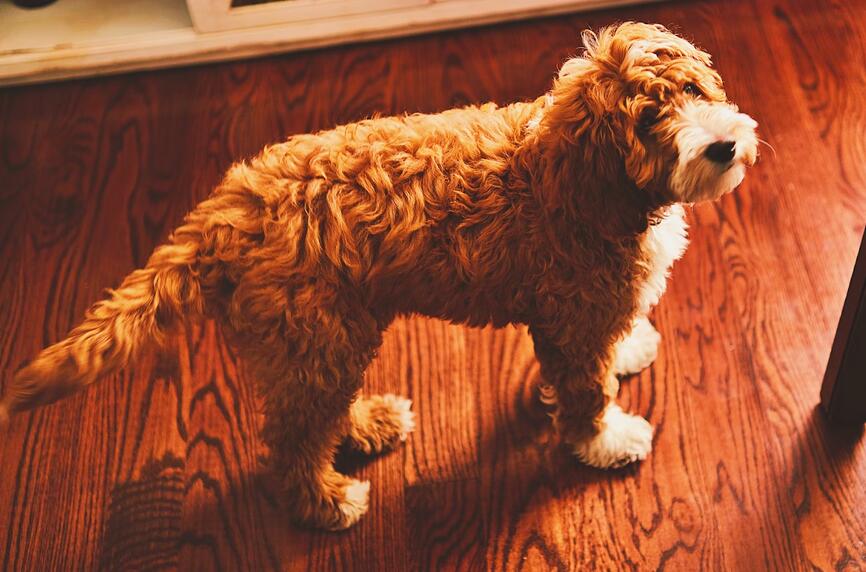
Grooming Needs of F1B Goldendoodles
Grooming is an important aspect of caring for your F1b Goldendoodle. Their curly or wavy coat needs regular brushing to prevent matting and tangling. It’s recommended to brush your F1b Goldendoodle at least once a week. But if your dog has a curlier coat, you may need to brush them more frequently.
F1b Goldendoodles don’t shed much but need regular haircuts to keep their coat manageable. Depending on their coat type, you may need to take your dog to a professional groomer every 6-8 weeks.
In addition to coat care, regular teeth brushing, nail trims, and ear checks are also important for maintaining your F1b Goldendoodle’s overall health.
Shedding in F1B Goldendoodles
The amount of shedding in F1B Goldendoodles can vary depending on the genes inherited from their parents. If the Poodle genes dominate, the coat will likely be low-shedding. However, if the Golden Retriever genes are more prominent, the coat may shed more.
Diet and nutrition for the F1b Goldendoodle
The F1b Goldendoodle requires a balanced diet to stay healthy and active. High-quality commercial dog food appropriate for their size, age, and activity level is generally a good choice.
Ensure that the food you choose for your F1b Goldendoodle contains high-quality protein sources like chicken, beef, or fish. It should also contain balanced carbohydrates, fats, vitamins, and minerals.
Avoid feeding your F1b Goldendoodle too much at once. Instead, divide their daily food intake into two or three smaller meals. This can help prevent bloating and promote better digestion.
Living conditions for the F1b Goldendoodle
Despite their size, F1b Goldendoodles can adapt to living in apartments if they exercise enough. They are also suitable for families with a backyard. However, they should not be left outside for long periods, as they prefer to be with their family.
F1b Goldendoodles are also known to be good swimmers, so access to a safe water source for swimming can be an excellent way for them to burn off energy.
Training tips for the F1b Goldendoodle
Training an F1b Goldendoodle can be a rewarding experience, thanks to their intelligence and eagerness to please. However, like all dogs, they require consistency and positive reinforcement to learn effectively.
Start training your F1b Goldendoodle as early as possible. Young puppies are more receptive to learning new behaviors and commands. You can use positive reinforcement techniques such as praise, treats, and play as rewards for good behavior.
Socialization is another crucial aspect of training. Expose your F1b Goldendoodle to various people, environments, and other animals to help them be confident.
Health Risks in F1B Goldendoodles
Here are some health risks that may be associated with F1B Goldendoodles:
1. Hip Dysplasia
Like their parent breeds, F1B Goldendoodles can be prone to hip dysplasia, which is an inherited condition where the hip joint does not develop properly.
This can lead to discomfort, lameness, and arthritis. Responsible breeders perform health screenings on their breeding dogs to reduce the risk of passing on this condition.
2. Progressive Retinal Atrophy (PRA)
PRA is a group of genetic eye disorders that can lead to vision loss and blindness. Although Poodles have a lower incidence of PRA compared to Golden Retrievers, there is still a risk of inheriting this condition. Regular eye examinations by a veterinarian are recommended.
3. Allergies
Both Poodles and Golden Retrievers are known to be susceptible to allergies, and F1B Goldendoodles may inherit this tendency.
Allergies can manifest as skin irritations, itching, and ear infections. Identifying and managing potential allergens through diet, environment, and veterinary guidance is important for their well-being.
4. Ear Infections
The floppy ears of F1B Goldendoodles can trap moisture, leading to an increased risk of ear infections. Regular ear cleaning and proper grooming practices can help prevent infections.
It’s important to keep the ears dry and seek veterinary attention if signs of infection, such as redness, odor, or discharge, are observed.
5. Dental Issues
Dental hygiene is important for all dogs, and F1B Goldendoodles are no exception. They can be prone to dental issues such as tartar buildup, gum disease, and tooth decay. Regular brushing and professional dental cleanings can help maintain good oral health.
6. Gastric Dilatation-Volvulus (GDV)
GDV, also known as bloat, is a serious condition that can affect deep-chested breeds. While the risk may be lower in F1B Goldendoodles compared to their Golden Retriever parent breed, it’s still important to feed them smaller, frequent meals.
Lifespan of F1B Goldendoodles
F1B Goldendoodles typically have a lifespan of 10 to 15 years on average. Smaller-sized Goldendoodles may live slightly longer than their larger counterparts.
Providing proper nutrition, regular exercise, and routine veterinary care can contribute to a longer and healthier life for your F1B Goldendoodle.
F1B Goldendoodle Cost and Expenses
The cost of an F1B Goldendoodle can vary depending on several factors, such as the location, breeder, and the dog’s characteristics. On average, you may need to pay between $2,000 to $3,500 for an F1B Goldendoodle puppy.
However, it’s important to note that the cost of the puppy is just one expense to consider when bringing a new dog into your home.
Adoption Options for F1B Goldendoodles
While finding an F1B Goldendoodle for adoption may be challenging, rescues are dedicated to saving and rehoming Goldendoodles.
However, F1B Goldendoodles may be less common in shelters, and their specific mix may not always be accurately known.
If you want to adopt, it is best to look for rescues specializing in Goldendoodles or contact local shelters and rescue organizations. Adoption is a rewarding way to provide a loving home to a needy dog.
How to Choose an F1b Goldendoodle Breeder?
Choosing a responsible and reputable F1b Goldendoodle breeder is crucial for a healthy and well-socialized puppy. Look for breeders who perform health tests on their breeding dogs and provide ample care and attention to their puppies.
Avoid breeders who seem more interested in making a quick sale than in the welfare of their dogs. It’s also a good idea to visit the breeder’s premises to see how the puppies are raised.
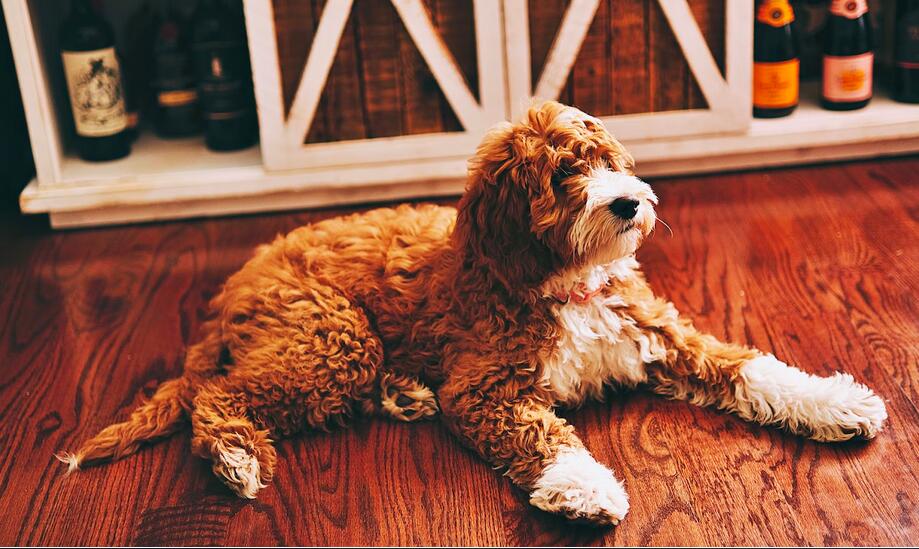
Conclusion: Is the F1b Goldendoodle the right breed for you?
In conclusion, the F1b Goldendoodle is a lovable, intelligent, and active breed that can make a wonderful addition to many families. They are excellent with children and get along well with other animals, and their hypoallergenic coat makes them a good choice for people with allergies.
However, they require regular exercise, mental stimulation, and grooming to keep them at their best. If you can provide these needs, and you’re looking for a friendly and loyal companion, then the F1b Goldendoodle could be the perfect breed for you.

